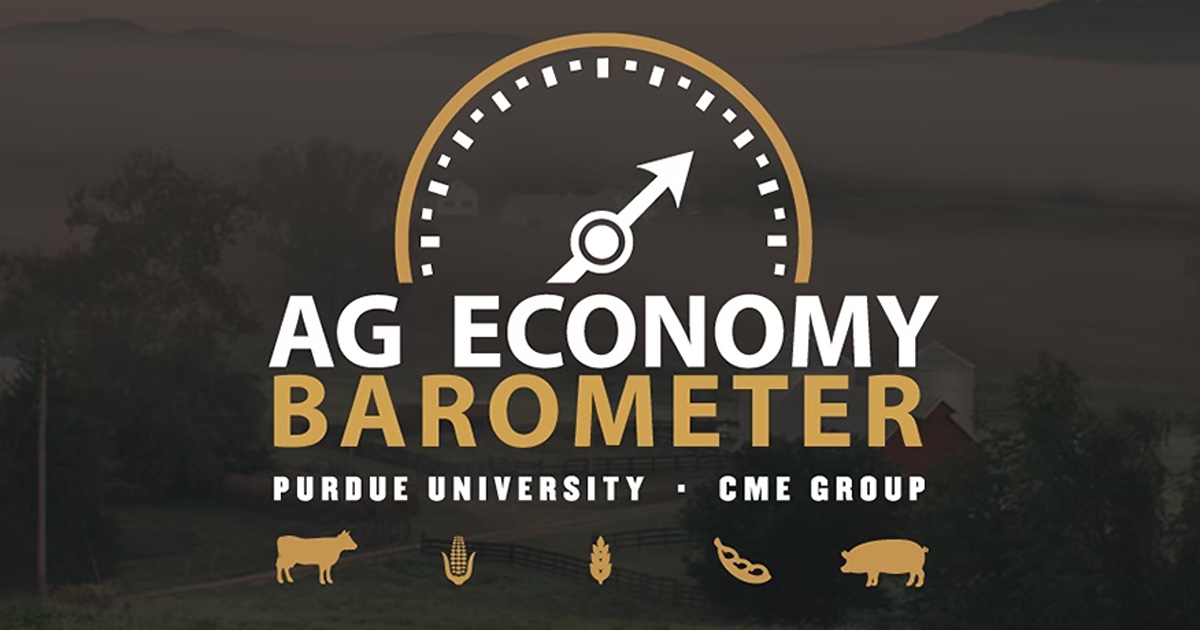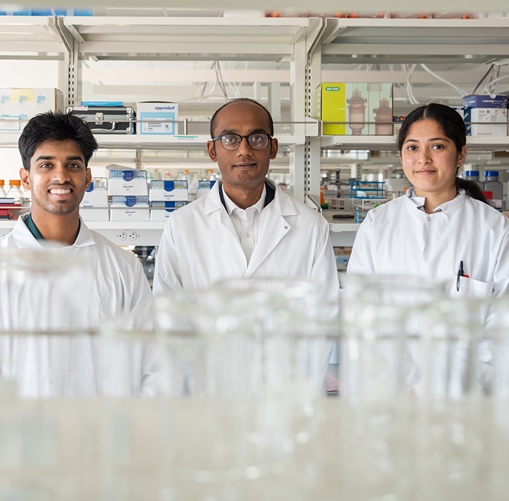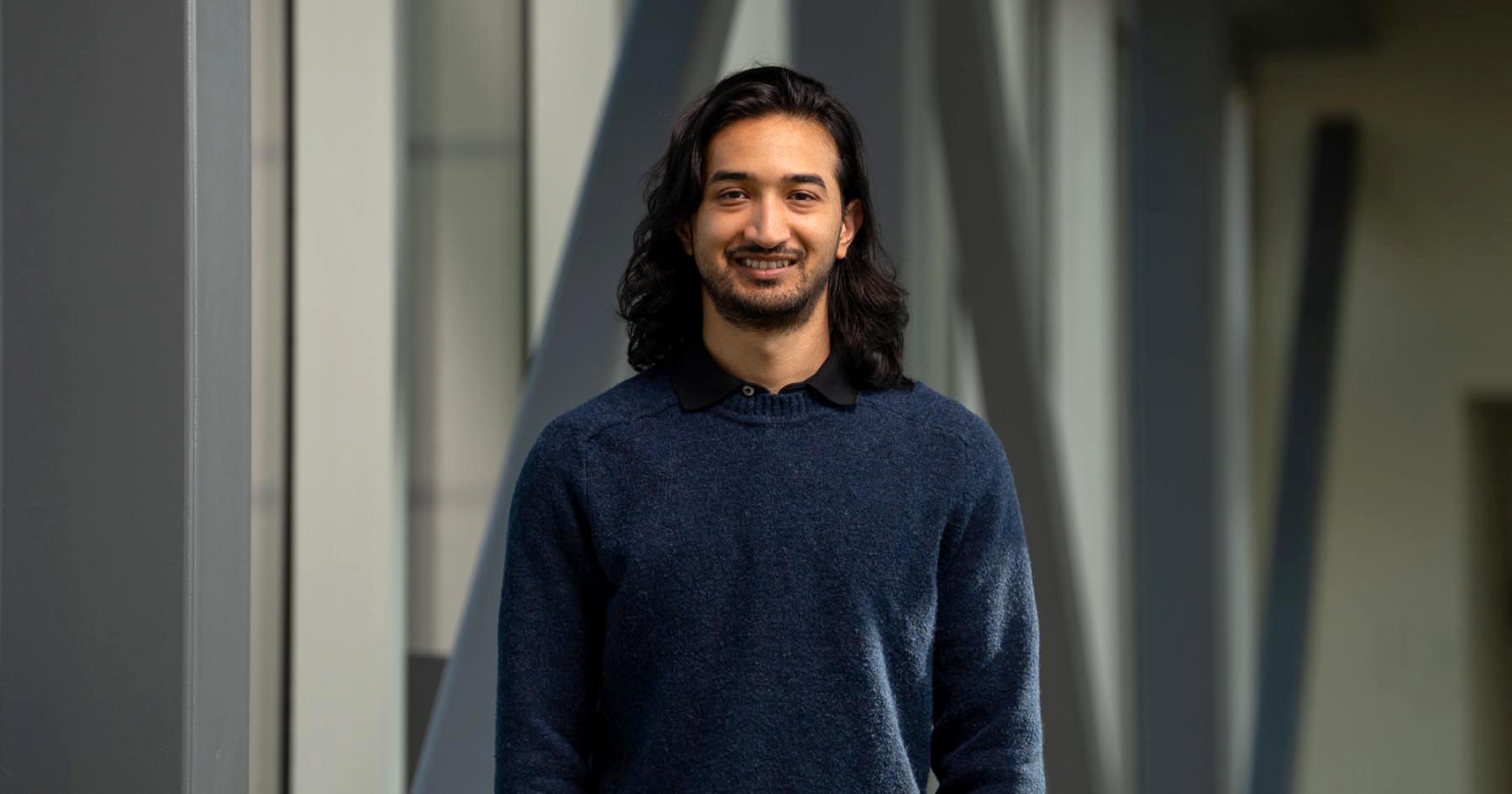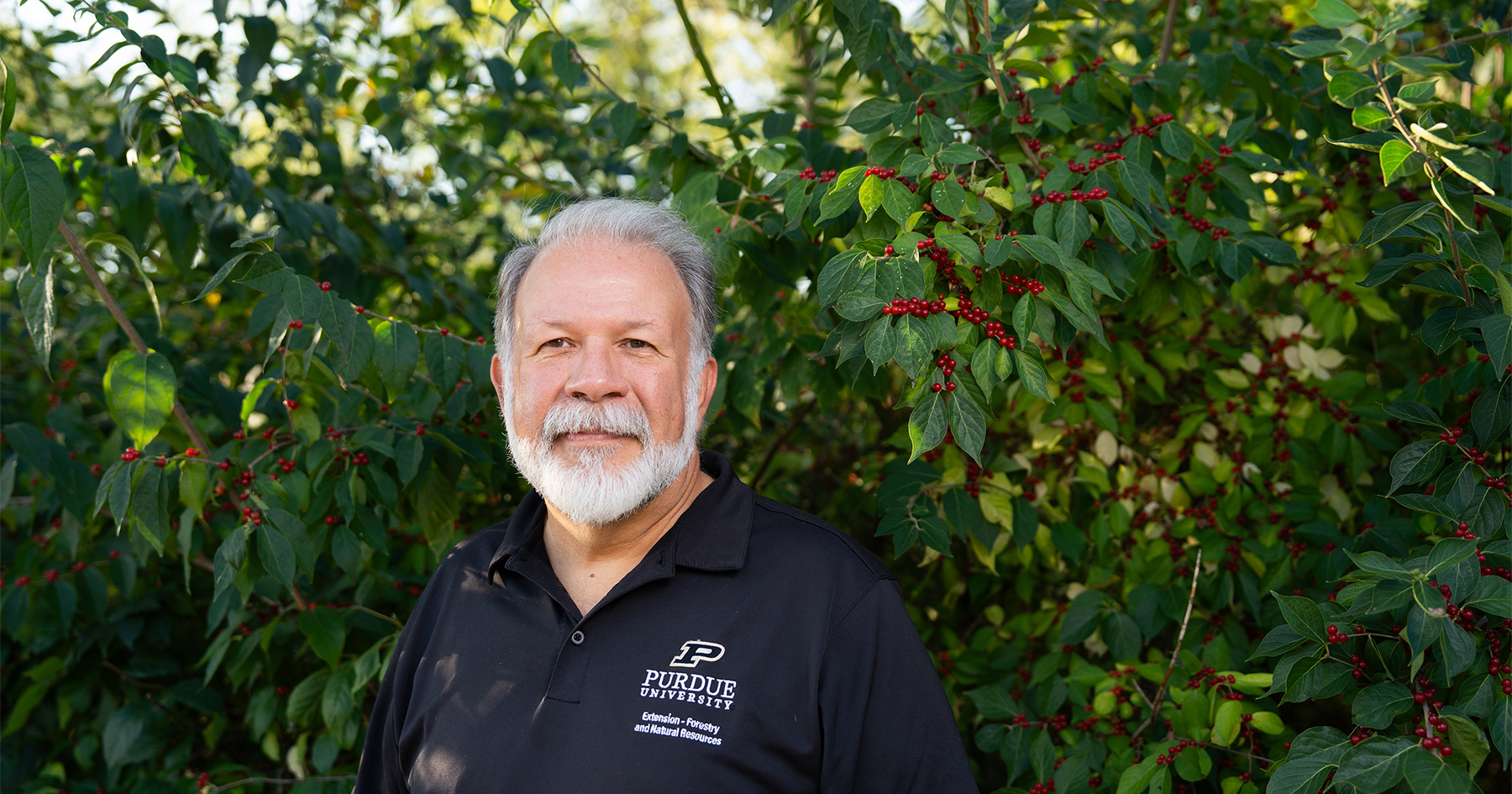Graduate Student Spotlight: Griffin Nicholls
Griffin Nicholls is a current PhD student and soon-to-be three-time graduate of Purdue Animal Sciences.
In 2017, Nicholls received his BS in animal sciences with a concentration in animal agribusiness. As an undergraduate student, he was involved in the first several years of the Collegiate Cattlemen's Association’s existence on campus, and he was the organization's third president. Additionally, he was a member of Alpha Gamma Rho.
Nicholls received his MS in 2020. His research involved fetal programming and ruminant nutrition, and his advisor was Jon Schoonmaker, PhD.
As a PhD student, Nicholls’ research involved beef heifer reproductive physiology with a focus on estrous synchronization. His co-advisors are Kara Stewart, PhD, and Ron Lemenager, PhD. Nicholls’ final defense seminar is scheduled for Tuesday, July 9. For more information on seminars through the Purdue Animal Sciences Department, click here.
Nicholls credits his mentor, Kevyn Miller, for his passion for animal sciences.
“I grew up working with heritage livestock breeds (all species) with Kevyn Miller,” said Nicholls. “It was the perfect way for me to indulge in my passion for animals and livestock specifically. Kevyn was also a hoof trimmer and graciously passed the trade on to me.”
Nicholls has been running his hoof trimming business for over 10 years now, serving clients from all over the country.
Nicholls originally only planned to receive his bachelor’s degree.
“I had not planned on earning either degree upon graduation, but I thoroughly enjoyed undergraduate research opportunities that I have achieved during my time at Purdue,” Nicholls said. “Now ten years later, I am so grateful for the support and education that the department has provided me with through my time here on campus.”
Because Nicholls will complete his PhD soon, he is currently searching for career opportunities in industry and academia.
Although Nicholls had many great accomplishments during his time at Purdue, he said his greatest was designing and implementing an internship program for students seeking experience in the animal industry.
“The role as primary coordinator of the inaugural program required developing a plan in which students are provided a unique opportunity to receive academic credit for hands-on participation at one of Purdue University’s off-campus animal units, over the course of one semester,” Nicholls said. “Both students and unit managers have regularly acknowledged the value of the ‘real world’ experience gained through their participation. As manager of this program, I deem it imperative that I engage both the unit managers and students in such a manner as to ensure they are the beneficiaries of a meaningful, and more importantly, relevant experience.”
Nicholls commented about the several positive attributes of the animal sciences program.
“A major asset to our department is the existence of the working farms located at ASREC. The managers are top-notch and are continually improving their production systems to help in the education of our undergraduates,” Nicholls explained. “These farms provide students of all backgrounds the opportunity to see first-hand what it takes to run a livestock operation. Additionally, I have the best faculty mentors I could ask for.”
Nicholls shared valuable guidance for incoming graduate students.
“Collaborate with other lab groups and create relationships with fellow graduate students. The chances are that you will share similar experiences and it is extremely beneficial to have a resource that you are comfortable asking questions to,” Nicholls explained. “Additionally, if you have any interest in pursuing a career in academia, I think it is pertinent to spend quality time in the classroom environment serving as a course coordinator or TA.”






